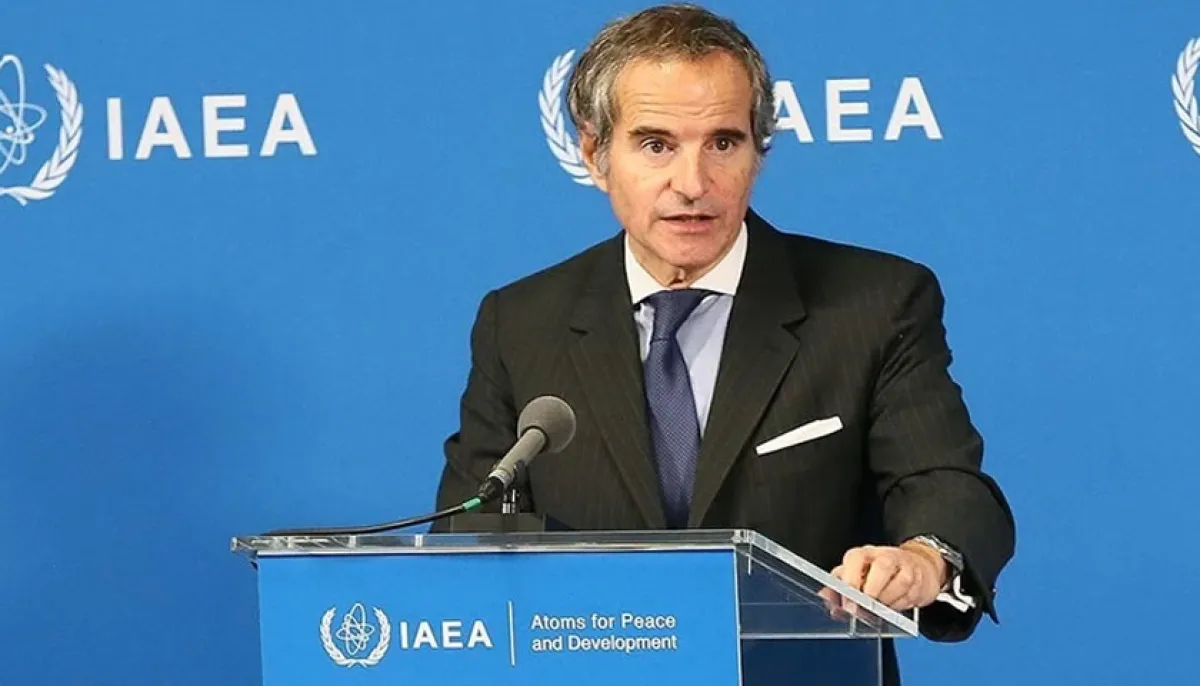
The head of the United Nations nuclear watchdog has issued a grave warning over the potential consequences of Israeli attacks on Iranian nuclear facilities, citing the risk of nuclear contamination and long-term damage to global non-proliferation efforts.
Speaking at an emergency meeting of the UN Security Council in New York, International Atomic Energy Agency (IAEA) Director General Rafael Grossi said the recent attacks have caused a "sharp degradation" in nuclear safety and security in Iran.
While no radiological release has yet affected the public, Grossi warned that the risk remains dangerously high.
In particular, he raised concerns about the Israeli strike on the Natanz nuclear site. Although radiation levels outside the facility remain within normal limits, there is confirmed radiological and chemical contamination inside.
“The radiation, primarily consisting of alpha particles, poses a significant danger if inhaled or ingested,” said Grossi. “This risk can be effectively managed with appropriate protective measures, such as respiratory protection. However, the main concern inside the facility is chemical toxicity.”
At the Esfahan nuclear site, where four buildings were damaged in the 13 June attack, there was no increase in off-site radiation, but similar concerns over chemical contamination persist. The IAEA reported no known damage at the Fordow enrichment facility, Iran’s main site for uranium enrichment to 60 per cent.
Grossi issued a particularly strong warning about the Bushehr Nuclear Power Plant, which remains operational and contains thousands of kilograms of nuclear material. “In case of an attack on the Bushehr Nuclear Power Plant, a direct hit could result in a very high release of radioactivity to the environment,” he cautioned.
He explained that even a strike that disables the plant’s two external power lines could lead to a meltdown of the reactor’s core, potentially requiring mass evacuations, sheltering measures, the distribution of stable iodine, and extensive food restrictions across areas spanning hundreds of kilometres.
The IAEA chief also raised alarm over the potential consequences of any attack on the Tehran Nuclear Research Reactor, saying it could have “severe consequences, potentially for large areas of the city and its inhabitants.”
“Armed attacks on nuclear facilities should never take place,” Grossi said, calling for restraint and a return to diplomacy. “Military escalation threatens lives and delays indispensable work toward a diplomatic solution for the long-term assurance that Iran does not acquire a nuclear weapon.”
He reiterated that a diplomatic resolution remains possible. “Elements for an agreement have been discussed,” Grossi noted.
“The IAEA can guarantee, through a watertight inspections system, that nuclear weapons will not be developed in Iran. This can form the basis of a durable agreement that brings peace and avoids a nuclear crisis in the Middle East,” Grossi said.
Grossi warned that failure to reach a political solution could have far-reaching consequences, including a protracted conflict and an erosion of the global nuclear non-proliferation regime. “The alternative,” he said, “is a looming threat of nuclear proliferation that would not only emanate from the Middle East but could unravel the Non-Proliferation Treaty itself.”
Source: UNB
